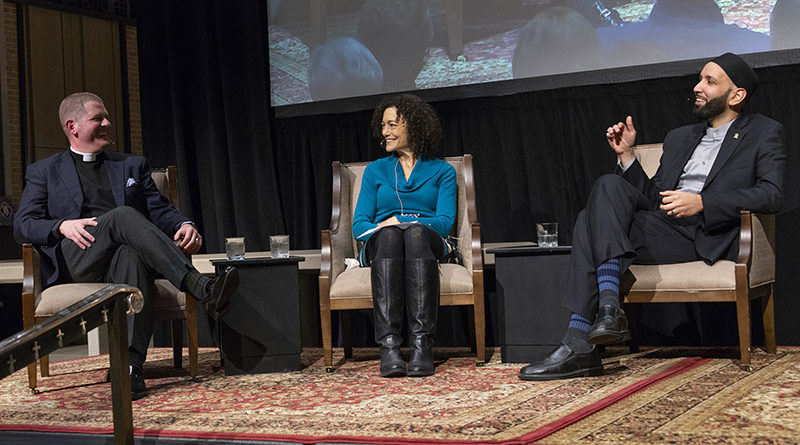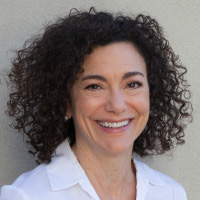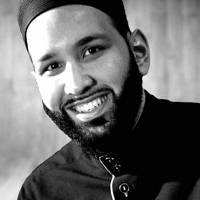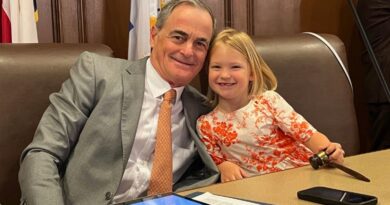Can We Coexist?
Rabbi Nancy Kasten, co-chair of Faith Forward Dallas – a diverse coalition of local religious leaders, sees different mindsets among believers when it comes to the acceptance of other faiths.
(ABOVE – FROM LEFT: The Rev. Chris Girata, Rabbi Nancy Kasten, and Oman Suleiman tout the value of understanding people from other faiths. Haal Photography)
There are those who build walls around their beliefs to protect themselves and those who believe such partitions cannot be sustained, she said. Her view lies with the latter.
The topic arose at a recent interfaith panel hosted by Saint Michael and All Angels Episcopal Church. Kasten was joined by the Rev. Chris Girata, rector of Saint Michael’s, and Oman Suleiman, professor of Islamic studies at SMU.
“We need to enhance our relationships with other groups, learn to trust each other, and work together to combat things mutually,” Kasten said to the hundreds of people who showed up for the second annual panel, Islam, Judaism and Christianity – The Conversation Continued.
While each member of the panel reviewed questions about laws, conversion, guiding future generations, and the faiths’ futures, the overall tone of the evening focused on the importance of acceptance among each faith and ensuring peace throughout the community.
“Demographically speaking, we are going to shift in the next 80 to 100 years (and) by 2100, there will be far more Muslims than Christians in the world,” Girata said. “We really do need to stop pointing at different people of faith and realize that being a person of faith is going to become less and less common.”
According to the Pew Research Center, while the world’s Christian population has grown modestly, Muslims are projected to be the world’s fastest-growing major religious group in decades.
Girata said looking at the contrasts and similarities between people of faith and of non-believers, “most of the time, we will seek the same things … peace, charity, kindness, protecting the vulnerable, and love.”
Suleiman, who also is the co-chair of Faith Forward Dallas, spoke on how misconceptions have hampered people’s perceptions of different religions throughout history.
“One of the biggest cop-outs is that religion is responsible for the most tragic acts in history. ISIS is not about religion. The Crusades were not about religion. These are political issues,” he said. “Religion is not the source of evil. The more I believe in Islam, the more I believe in the rights of others, the more I believe in my religion, [and] the more I believe in our humanity. We’re not perfect, but I think that we are onto something.”
The audience erupted into applause.
“When you mix religion with political agenda, you become especially combustible,” he said. “The idea that the only way to coexist is for each one of us to relinquish a bit of ourselves is deeply problematic.”












